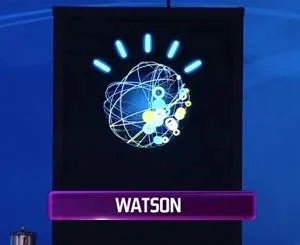IBM’s supercomputer Watson proved that it’s able to understand human language enough to stomp out the best contestants in Jeopardy history like they were a couple of high school freshmen. Now, it has its sights on a much more meaningful goal.
Watson became a household name this week during a three-day-long Jeopardy competition. While some may not have been blown away that it was able to parse together the often-verbose quiz show clues well enough to create a one or two word response, those who understand computer science should be able to appreciate what a breakthrough this is.

The way Watson works is by going through a highly complex series of algorithms to figure out what words in a sentence are the most important. For example, in a clue that reads, “This Ohio city shares the same name as a kind of bean,” Watson can not only figure out that the word “city” is the apex of the question, but also that it’s from “Ohio” and needs to also be a type of “bean.” (The correct response, by the way, would be Lima).
It’s more difficult than it sounds, as there are an infinite amount of potential questions and keywords. Yet, there’s only one correct response to each question.
IBM says the most parallel application of that in the real world is in medicine. Imagine a day when doctors can type in their patient’s symptoms, and feed it into a Watson computer that can comb through literally every medical journal ever published. Watson would be able to tell what the best course of treatment is and what the most likely diagnosis is.
But Watson doesn’t just spit out one thing. It’s able to display, in a user-friendly way, every possible diagnosis with a confidence level for each. Doctors could relay that information to their patients.
IBM has announced a joint partnership with Nuance Healthcare to add its medical technology solutions to the Watson program to assist in diagnosis and treatment.
Of course, this is far different from something ultimately trivial like a game show. People’s lives are at stake here, but IBM thinks its technology can live up to the challenge.
No other solution like this is available for the health care industry, and it is potentially revolutionary. It may be some time before physicians feel confident enough to rely on such an emerging product, but if it continues to improve as it did during the lead up to the Jeopardy challenge, it may only be a matter of time.






